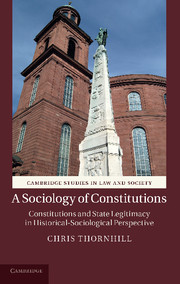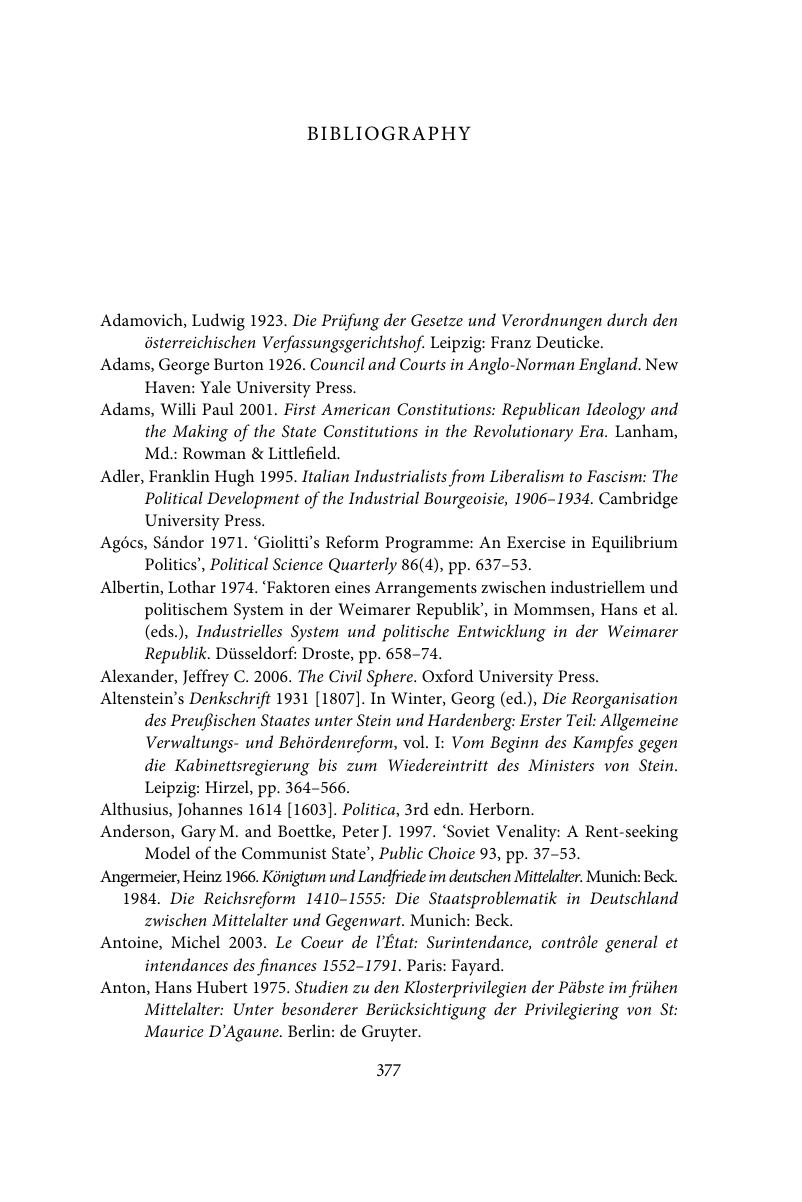 A Sociology of Constitutions
A Sociology of Constitutions Book contents
- Frontmatter
- Contents
- Acknowledgements
- A note on texts and translations
- Introduction
- 1 Medieval constitutions
- 2 Constitutions and early modernity
- 3 States, rights and the revolutionary form of power
- 4 Constitutions from empire to fascism
- 5 Constitutions and democratic transitions
- Conclusion
- Bibliography
- Index
- References
Bibliography
Published online by Cambridge University Press: 07 September 2011
- Frontmatter
- Contents
- Acknowledgements
- A note on texts and translations
- Introduction
- 1 Medieval constitutions
- 2 Constitutions and early modernity
- 3 States, rights and the revolutionary form of power
- 4 Constitutions from empire to fascism
- 5 Constitutions and democratic transitions
- Conclusion
- Bibliography
- Index
- References
Summary

- Type
- Chapter
- Information
- A Sociology of ConstitutionsConstitutions and State Legitimacy in Historical-Sociological Perspective, pp. 377 - 424Publisher: Cambridge University PressPrint publication year: 2011


